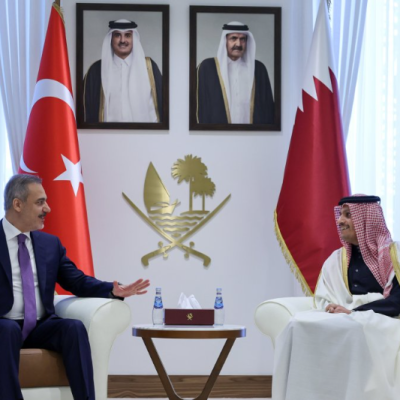Slump in the oil market pulls down Libyan central reserves by 20%

According to the recent report published by the Libyan audit bureau, the country’s central bank reserves are expected to fall by 20%due to plummeting oil exports of the country. The eastern forces of Libya, controlled by strongman Khalifa Haftar, are believed to be responsible for slashed energy exports as Haftar’s army, which has hold over most of the country’s oil reserves blocked the supply chain in retaliation to ongoing attacks carried out by UN-recognised Libyan government. The eastern forces shut down oil exports in January 2020.
Besides the domestic conflict, receding global oil prices also hit the country’s economy, which is highly dependent on oil industry. The oil industry all across the world witnessed historic slump with dried up demand due to the global lockdown imposed to curtail coronavirus pandemic. Petroleum industry contributes to over 95% of Libya’s export earnings and about 60% of its Gross Domestic Products. Thus, the audit bureau predicted that the ongoing oil crisis, wherein the annual oil prices tumbled down from $31billion to $5 billion, would pull down the country’s central bank reserves to $50billion.
On Friday, the Tripoli-based audit bureau posted a video on Facebook, which said, “The fiscal deficit is forecasted to reach $19 billion this year”, whereas last year the government earned a surplus of 11 billion dinars.
Libya has been struggling to achieve political stability since 2011 revolution, organised to dethrone its autocratic ruler Moammar Gaddafi. Unfortunately Gaddafi’s exit led to creation of more than a thousand militia groups in the North African state, which has the largest oil reserves in Africa. Currently the two major factions that are battling to win control over the country are – UN-backed Fayez al-Serraj’s Government of National Accordand General Khalifa Haftar’s Libyan National Army. Haftar returned to Libya in 2011, during the revolt against Gaddafi, butfailed to find a role at first.
His rise on the national scene came in 2014, after he formed his LNA and launched Operation Dignity against militias in Tripoli. Rising conflict between the rival forces of Mr. Haftar and Mr. Serraj has taken a toll over Libyan economy where unemployment rate increased to 17.30% in 2019, from 17.29% in 2018, where as it was 17.12 percent in 2017. Libya’s rate of unemployment is expected to reach 18% by the end of 2020.
International institutions, including United Nations and European Union, has raised concern over worsening of crisis in Libya. The rival forces have been fighting for months have contributed to doubling of humanitarian crimes in the country including air strikes in residential areas, bombing hospitals, killing civilians, and blocking food, water and medical supplies from reaching the opponent’s area. UN experts said that the escalating violence in the country amounts to war crimes. It is the worst the nation could endure, especially when its already facing a major health crisis – covid-19. External forces are trying to make the warring heads initiate peace talks as given the weak health infrastructure and poor living conditions of Libyan residents, it needs to stand together to address corona related issues with all seriousness.





